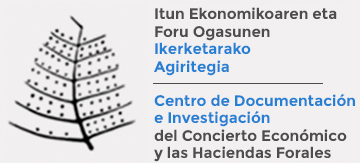On 6th December 2012 the European Commission adopted a Regulation offering detailed rules for implementing Council Directive 2011/16/EU . It includes various provisions on the standard forms and means of communication that Member States will use when exchanging information.
Some of the most prominent features are:
- The Directive ensures that the EU standards for transparency and exchange of information on request are aligned to international standards. In particular, it provides that Member States can no longer refuse to supply information solely because this information is held by a bank or other type of financial institution.
- The Directive provides for the exchange of information that is of `foreseeable relevance` to the administration and the enforcement of Member States’ tax laws.
- The scope of the Directive is extended to all taxes of any kind with the exception of VAT, customs duties, excise duties and compulsory social contributions already covered by other Union legislation on administrative cooperation.
- The exchanges can relate to natural and legal persons, to associations of persons and any other legal arrangement.
- The Directive introduces automatic exchange of information from 1 January 2015 on five categories of income and capital based on available information (income from employment, director’s fees, life insurance products not covered by other Directives, pensions, ownership of and income from immovable property). Following a Commission report to be submitted before 1 July 2017 and on the basis of a new proposal by the Commission, this list might be extended to dividends, capital gains and royalties. In addition, the Council may also decide to introduce unconditional automatic exchange of information in respect of at least three of the five aforementioned categories.
- The Directive also ensures that the existing mechanisms for exchange of information are improved. Deadlines are introduced to accelerate procedures both for the exchange of information on request (reply within six months following receipt of request) and for spontaneous exchange of information (transmission of information no later than one month after it becomes available).
- The Directive introduces a mechanism to encourage feedback by the Member States that have received the information. Such feedback should be given, at the latest, three months after the outcome of the use of the information is known.
- The Directive provides for other means of administrative cooperation including being present in the offices where the administrative authorities of the requested Member State carry out their duties, being present in administrative enquiries of the requested Member State, simultaneous controls, requests for notification and sharing of best practices.
- The Directive provides for the introduction of standard forms for exchange of information on request and spontaneous exchanges, computerised formats for the automatic exchange of information and channels for exchanging information.
- The Directive contains a most favoured nation clause: if a Member State provides wider cooperation to a third country than that provided for under the directive it may not refuse such wider cooperation to another Member State that requests it on its own behalf.


